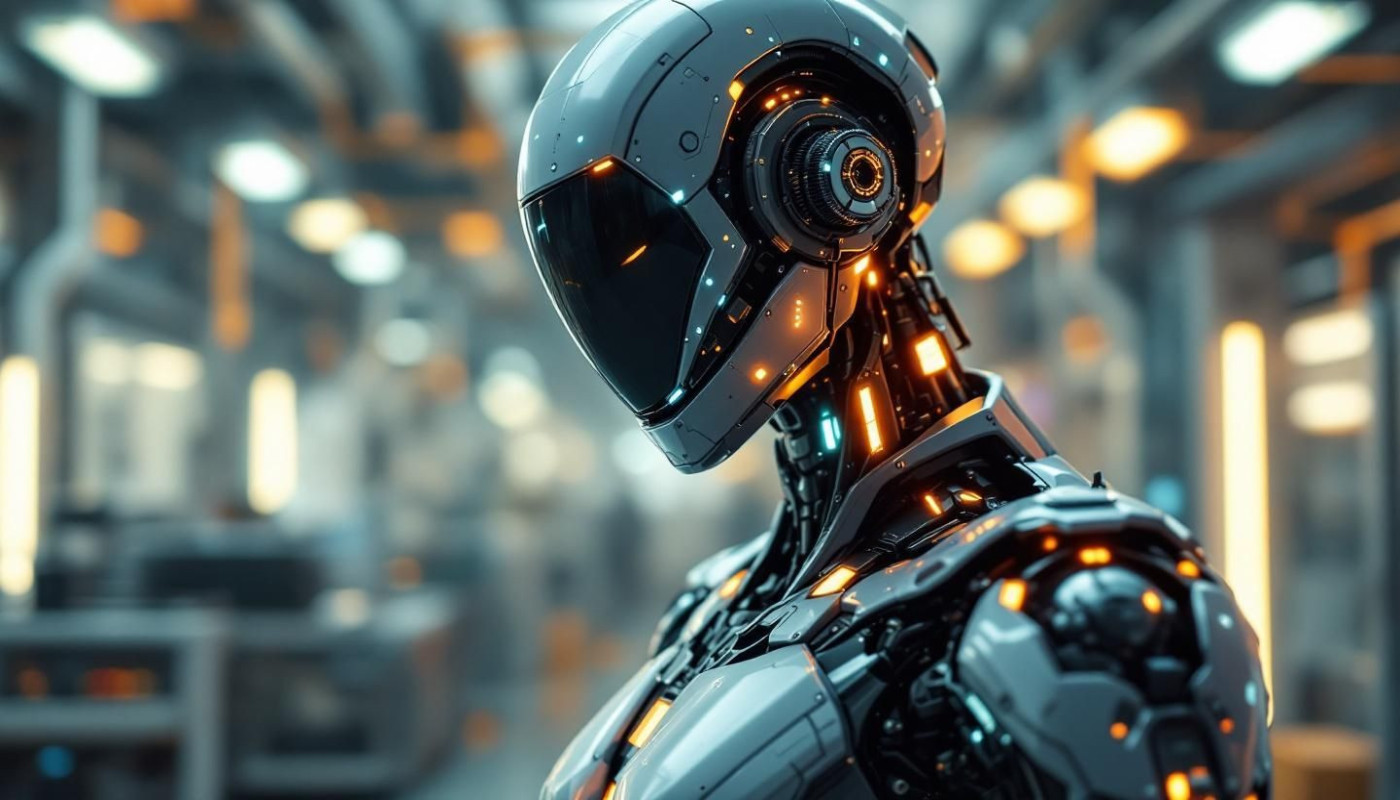Table of contents
The digital landscape is constantly evolving, with artificial intelligence (AI) at the forefront of this transformation, particularly within modern personal computers. AI's integration into PC technology has revolutionized the way we interact with our devices, offering unprecedented levels of efficiency, customization, and automation. As we stand on the cusp of what may be the most significant shift in computing since the advent of the internet, it is imperative to explore how AI is reshaping our digital experiences. This exploration opens a window to understanding the profound implications of AI in the everyday technologies that have become integral to our personal and professional lives. From enhancing processing capabilities to powering intuitive user interfaces, AI is not just a feature; it's becoming the very fabric of modern computing. Delve into the transformative power of AI in personal computers and discover how it is setting the stage for a future where technology is more seamlessly integrated into the human experience than ever before.
The Heart of Innovation: AI Processors
The advent of AI processors has redefined the capabilities of modern PCs, steering them towards an era where computational efficiency is paramount. These specialized processors are tailored to facilitate the complex operations of machine learning, allowing computers to not only execute tasks but to also learn and enhance their performance over time. With the rise of machine learning algorithms and the intricate web of neural networks, these AI processors are optimized to handle the vast amounts of data that are processed, making them indispensable in PC innovation. A key feature that sets AI processors apart is their adeptness at parallel processing, a technical term that refers to the ability to execute multiple calculations simultaneously, vastly improving processing speed and efficiency. To gain deeper insights into the transformative impact of AI processors, a dialogue with a computer hardware engineer could elucidate the nuances of this technology and its pivotal role in advancing the computational prowess of modern PCs.
Personalization Redefined: Smart Assistants
The advent of AI-driven smart assistants has revolutionized the realm of personalized computing, offering users an unprecedented level of customization in their daily interactions with personal computers. These digital helpers leverage complex algorithms and natural language processing to understand and anticipate individual preferences and needs. Through consistent user experience, smart assistants observe and adapt to patterns in user behavior, thereby refining their support and recommendations to become increasingly accurate and user-specific over time.
The implications of this for accessibility and ease of use are significant. By reducing the need for manual customization and simplifying the interaction process, smart assistants make technology more approachable for people with varying levels of technical skill or physical ability. AI customization facilitates a more inclusive environment, where users of all backgrounds can benefit from technology that adapts to their unique situation. To gain further insight into this transformative technology, it would be invaluable to consult AI researchers or user interface experts who can expound on the intricacies of natural language processing and the future trajectory of smart assistant evolution.
Enhanced Security through AI
In the realm of cybersecurity, artificial intelligence (AI) is playing an increasingly pivotal role in safeguarding personal computers against a myriad of threats. One of the standout capabilities of AI in this domain is its ability to detect and neutralize cyber threats with a swiftness and efficiency that surpasses traditional software. This enhanced threat detection is achieved through sophisticated machine learning algorithms that analyze patterns and anomalies that could signify potential security breaches. Moreover, AI-driven predictive analytics empower these systems to forecast possible vulnerabilities, enabling preemptive action before breaches occur. As AI integrates deeper into AI cybersecurity measures, it utilizes vast data sets to learn and adapt, making AI security systems increasingly adept over time. Vulnerability assessment through AI not only streamlines the identification of weak spots but also orchestrates a more strategic, data-informed response. It is recommended that an individual with expertise in cybersecurity and a profound understanding of machine learning algorithms should explore the multifaceted advancements AI is introducing to this critical field.
Optimizing Performance with AI
In the realm of personal computing, AI optimization has become a transformative force, particularly in enhancing the way PCs manage resources. By leveraging the technical prowess of predictive modeling, AI systems are now adept at analyzing user behavior patterns. This enables a more efficient allocation of computing power and memory, tailoring resource distribution to the specific needs of active applications. The precognitive aspect of AI does not just stop at resource management; it extends to predicting which applications a user is likely to open next, allowing for the pre-loading of data and programs. The advantage of this foresight is a tangible uptick in system responsiveness, which is particularly noticeable when users are multitasking. This proactive approach minimizes the latency often experienced when switching between resource-intensive tasks, thereby providing a seamless user experience. The integration of AI into modern PCs is not just an incremental step; it represents a significant performance enhancement, elevating the capabilities of everyday computing to new heights.
The Future of Gaming with AI Integration
The landscape of PC gaming stands at the threshold of a revolution, all thanks to the integration of Artificial Intelligence. With AI, gaming experiences are poised to become unimaginably immersive and dynamic. One of the standout features is the advent of game environments that intelligently adapt to player choices and styles. These dynamic environments ensure that each playthrough can offer a unique experience, keeping the gameplay fresh and engaging. In tandem with these personalized landscapes, the behavior of NPCs has seen a marked improvement. Complex algorithms enable these characters to exhibit behaviors that are more nuanced and realistic, thereby enhancing the narrative depth and engagement within games.
Further elevating the realism in games is the advancement in real-time rendering technologies powered by AI. This allows for incredibly detailed and lifelike graphics that can be generated on the fly, thereby reducing load times and increasing the player's sense of presence within the game world. For game developers, AI not only streamlines the development process but also opens new creative avenues. Procedural generation, a technical term often associated with AI in game design, refers to the creation of game content algorithmically as the game is played. This technique can generate vast amounts of content, providing a fertile ground for innovation and experimentation.
The impacts of AI on the gaming industry extend beyond mere technical enhancements; they redefine what it means to play and create within this digital realm. As game developers harness AI in more sophisticated ways, we can anticipate games that not only look and feel more realistic but also cater to our individual preferences and gameplay styles in unprecedented ways. The integration of AI gaming is setting a new benchmark for what is possible, pushing the boundaries of NPC behavior, dynamic environments, real-time rendering, and game development as a whole.
On the same subject

Enhancing Security: Best Practices For Mac Users

Exploring The Benefits Of Automated Patch Management For Linux Servers

AI and Machine Learning: The Next Frontier in Computing

Exploring The Impact Of Industry Automation On Modern Businesses

